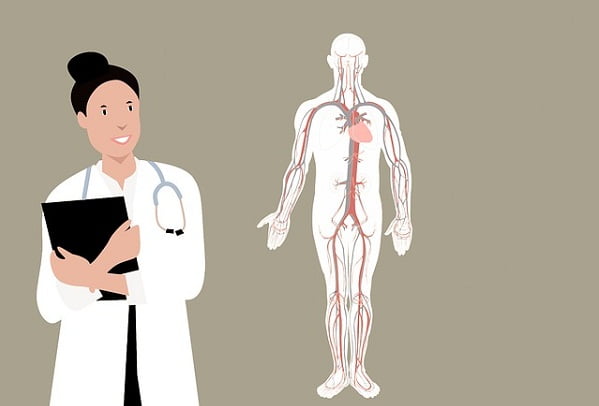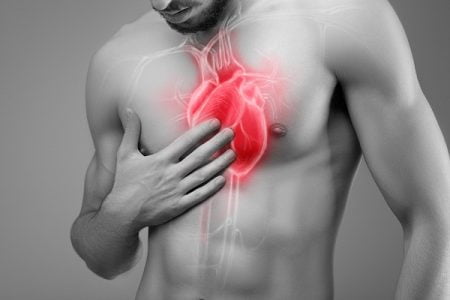What is the Treatment of Enlarged Heart (Cardiomegaly)?
- Updated on: Jul 29, 2024
- 3 min Read
- Published on Apr 19, 2019

Can an enlarged heart be treated?
An enlarged heart can be treated and, in some cases, it is possible over time to reduce the area of your heart that has become enlarged.
Treatments for an enlarged heart focus on correcting the underlying cause of heart enlargement.
Enlarged heart treatment (Cardiomegaly)
There are medicines available to treat high blood pressure which is the most important reason for the heart muscle to get enlarged.
ACE inhibitors and angiotensin receptor blockers are often found helpful in patients with enlarged heart.
A medical procedure or a surgery may be required if the condition cannot be controlled with medications and lifestyle modifications.
How are enlarged hearts treated by doctors?
Lifestyle and home remedies for enlarged heart
- follow a healthy diet
- manage the levels of stresses in your life
- lose excess weight (if you’re overweight)
- get plenty of sound sleep (at least eight hours night sleep)
- control any underlying condition such as diabetes
- quit smoking
- avoid consumption of alcohol
- take time for a light and modest exercise after discussing with your doctor
- monitor your blood pressure regularly and control hypertension
- avoid caffeine
- limit salt in your diet
- adopting a low-fat diet
- dietary changes to reduce blood cholesterol levels
- frequent medical check-ups to ensure the treatments are working as needed
Medication
If there is any particular heart condition to blame for your enlarged heart, your doctor will prescribe medications for treatment and/or controlling it. These medications may include:
- Angiotensin-converting enzyme (ACE) inhibitors: used to lower your blood pressure and improve your heart’s pumping function. Most often, these treat high blood pressure, but they are found to improve heart function too.
- Angiotensin receptor blockers (ARBs): used for those who can’t take ACE inhibitors
- Beta blockers: these medicines lower your blood pressure and improve heart function
- Anticoagulants: these drugs are used to reduce the risk of blood clots that may cause a heart attack or stroke, which can in turn lead to enlargement of the heart
- Diuretics: to lower the amount of sodium and water in your body, which ultimately helps lower the blood pressure in your arteries and heart and prevent/control hypertension. These are ‘Water pills’ that make you pee more. This causes the heart to not pump as much. These medicines also help relieve leg swelling.
- Anti-arrhythmics: to keep your heart beating with a normal rhythm and prevent arrhythmias
Medical procedures for treating enlarged heart
If medications do not significantly help, your doctor may recommend medical procedures. These may include such as:
Medical devices to manage your heartbeat (implantable medical devices)
In particular if the enlarged heart is due to dilated cardiomyopathy, a pacemaker may be placed between the left and right ventricle as necessary. Pacemaker is an implantable medical device to coordinate heart contractions.
In people who are at risk of arrhythmias, an implantable cardioverter-defibrillator (ICD) may be used.
ICDs are small devices that are implanted in your chest to continuously monitor your heart beats and deliver electrical shocks when needed to control abnormal rhythms of the heart.
You may be recommended medical procedures to return your heart to regular rhythm or to avoid your heart from beating too quickly if the main cause of enlarged heart is atrial fibrillation.
Surgery for treating enlarged heart
Heart valve surgery
If the enlarged heart is caused due to a problem with any of your heart valves or if the heart enlargement has caused heart valve problems, your doctor may suggest for a surgery to repair or replace the affected valve(s) to fix the problem.
Coronary bypass surgery
Your doctor may recommend coronary artery bypass surgery if the underlying cause of your enlarged heart is coronary artery disease or any other type of blockage in the arteries.
Left ventricular assist device (LVAD)
If you have had a heart failure, you may need an implantable mechanical pump to help maintain pump function of the heart.
You may require an LVAD that is implanted in the body till you get a heart donor for heart transplant or if you’re not eligible for a heart transplant. This serves as a long-term treatment for heart failure.
Heart transplant
If all other options do not work, a heart transplant may be a final option. Because of the shortage of donor hearts, even people who are critically ill may have a long wait before having a heart transplant. In several cases, they do not get a heart donor.












